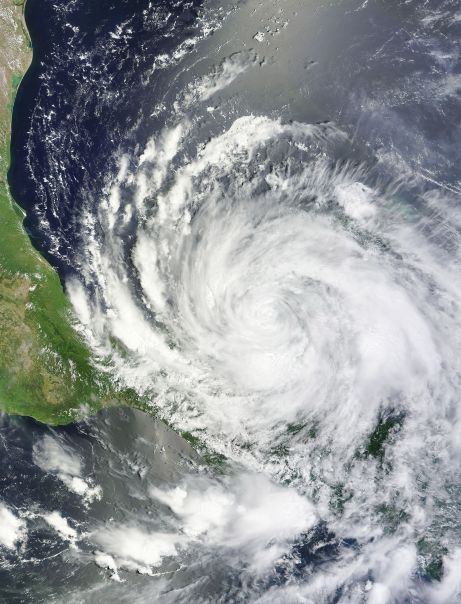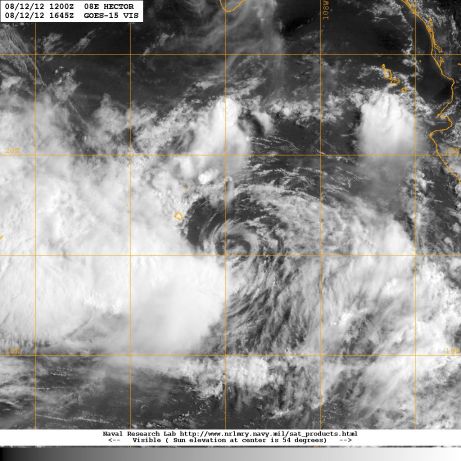
(NOAA)
On August 8, 2012, Hurricane Ernesto struck the Mexican state of Quintana Roo on the Yucatan peninsula. As a Category-One hurricane, it dumped copious rain across the Yucatan and southern Mexico. Its remnants reformed in the eastern Pacific as a tropical storm.
Ernesto formed from an African easterly wave, which moved off the African coast on July 27th. It was tracked by satellite for the next five days. An Air Force Hurricane Hunter flew into the system as it approached the Lesser Antilles, and NHC classified it a tropical depression on Aug. 1st when they found a closed circulation. The system struggled against wind shear and dry air and slowly organized into a tropical storm late on the following day, being named Ernesto. The next day, it moved very close to St. Lucia. Although heavy winds closed down transportation among the neighboring islands, no significant damage was reported.
Ernesto maintained a westerly course and struggled against dry-air intrusion to maintain tropical-storm strength. As it approached Nicaragua on August 6th, the storm diverted to a northwesterly track and avoided landfall in Central America. Late on August 7th, as it neared Belize, Ernesto finally organized into a hurricane with maximum sustained winds of 100 mph (155 km/hr).

(NOAA)
It made landfall in Mexico early on August 8th with winds slightly less than the peak values. It weakened quickly as it moved over the peninsula and reached the Bay of Campeche less than a day later. It skirted along the shore and made another landfall just a few hours later. The trip across the Mexican mountains disrupted its circulation, and no clear center could be tracked. However, the envelope of clouds and moisture could be followed into the eastern Pacific. By August 11th the system reformed into Tropical Storm Hector. During its track over Mexico, Ernesto caused over US$250 million and resulted in a dozen deaths (directly and indirectly). As Hector, it caused evacuations but minimal destruction to Mexico’s Pacific coast.